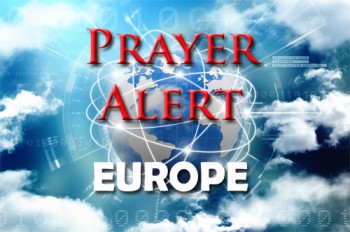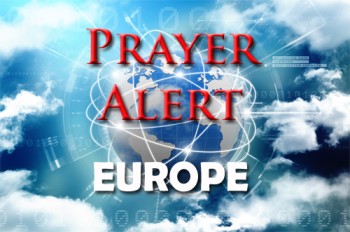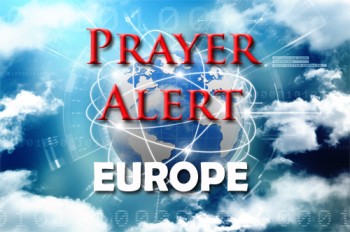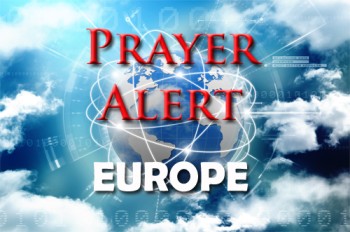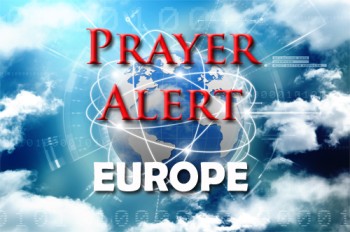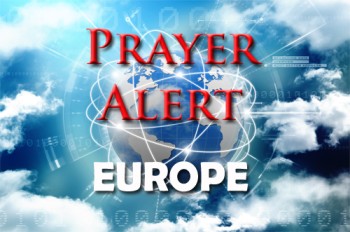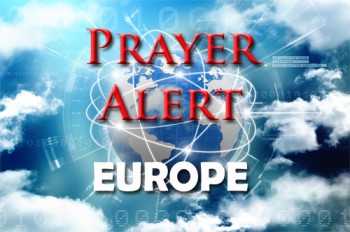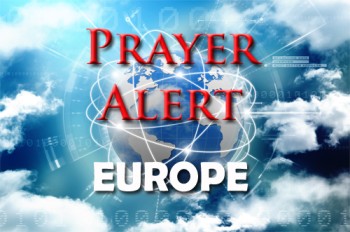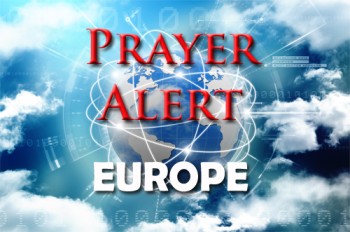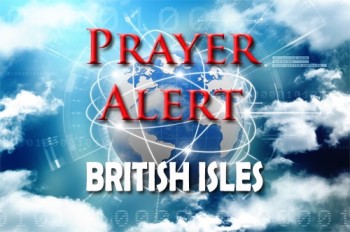Displaying items by tag: Europe
Romania: pro-European wins presidential election
Nicusor Dan, the liberal and pro-European mayor of Bucharest, has defeated far-right nationalist George Simion in Romania’s presidential run-off, securing 54% of the vote. His victory followed months of political upheaval, including a contested earlier election annulled over alleged Russian interference. Despite Simion’s strong support from Romanians abroad and his alignment with banned candidate Calin Georgescu, Dan prevailed with broad domestic backing. Supporters praised his anti-corruption platform, EU alignment, and commitment to Ukraine. Jubilant crowds celebrated in Bucharest after results confirmed his win. Many voters viewed him as a stabilising force in contrast to Simion’s nationalist, anti-EU rhetoric. International leaders, including those from Moldova and Ukraine, welcomed Dan’s win as a reaffirmation of Romania’s European path. Nonetheless, Simion’s strong showing reveals significant dissatisfaction, especially among Romanians abroad, signalling ongoing political tensions that Dan must now work to heal.
Ukraine / Russia: delegations arrive in Istanbul, but not Putin
Peace efforts between Russia and Ukraine took a cautious step forward as Russian delegates arrived in Istanbul on 15 May for proposed negotiations. Volodymyr Zelensky had invited Vladimir Putin to meet in person, but Putin declined, appointing aide Vladimir Medinsky to lead Russia’s delegation. The absence of top Russian officials, including foreign minister Sergey Lavrov, cast doubt on Moscow’s seriousness. Ukraine, emphasising the need for high-level talks, questioned the format and substance of the meeting. Zelensky said he would decide Ukraine’s response after seeing Russia’s true intentions. Ukraine and its allies had urged an unconditional ceasefire from 12 May, a proposal Moscow ignored. Donald Trump, who at one stage expressed interest in attending, will not participate, though Marco Rubio, Steve Witkoff, and NATO secretary Mark Rutte could do so. The situation remains fluid, with uncertainty surrounding whether the talks will lead to meaningful de-escalation or remain another missed opportunity.
EU: court rules against EC refusal to release text messages to Pfizer
The EU General Court has ruled that the European Commission failed to justify its refusal to release text messages between Ursula von der Leyen and Pfizer CEO Albert Bourla regarding Covid-19 vaccine contracts. The case, brought by the New York Times, has been described as a landmark in institutional transparency. The EC had argued that texts are too ephemeral for official documentation, but the court rejected this, stating that all communication must be treated as potentially subject to public access. Critics, including the EU Ombudsman, had said that the secrecy risked favouring private interests over public welfare. Previous attempts to obtain vaccine contract details had also been met with redactions and resistance. Reacting to the decision, one commentator said, '(It is) everyone’s win as this judgment is set to lead greater accountability of EU leaders' actions’.
Vatican: a new pope is elected
On 8 May Pope Leo XIV, born Robert Francis Prevost in Chicago in 1955, was elected as the new head of the Catholic Church, becoming the first North American, American, and Peruvian pope. A member of the Order of Saint Augustine, he is also the first Augustinian pope in modern times. Prevost’s career included decades of service in Peru as a pastor, seminary educator, and diocesan official, before rising within his order’s global leadership. He later served as Bishop of Chiclayo and was made a cardinal in 2023, shortly before becoming Prefect of the Dicastery for Bishops - a critical Vatican post. His wide linguistic fluency and diverse cultural experience positioned him as a bridge between the global North and South. His leadership will be closely watched for how he navigates past controversies and leads a Church increasingly shaped by voices from the global south.
Ukraine: Putin announces three-day ceasefire
Vladimir Putin has announced a new three-day unilateral ceasefire, to run from 8 to 10 May, coinciding with Russia’s World War II commemorations. It follows a previous thirty-hour Easter ceasefire, which critics say Moscow repeatedly violated. The Kremlin frames these brief pauses as humanitarian gestures; Ukrainian officials argue that if Russia truly sought peace, it would halt hostilities immediately. Foreign minister Andrii Sybiha called for a thirty-day truce instead. Observers question whether Putin’s moves are sincere peace efforts or merely an attempt to influence Donald Trump, who has recently voiced frustration with both Russia and Ukraine. Trump has criticised Putin for continuing attacks on civilian areas and floated harsher sanctions. When in March he proposed a thirty-day ceasefire, Ukraine agreed, but Russia did not. In another development, the much-anticipated natural resources agreement between the USA and Ukraine has been signed: see
Spain / Portugal: cause of massive power cut still not known
A widespread power cut on 28 April disrupted millions across Spain and Portugal, prompting investigations and huge public concern. Portugal’s national grid operator, REN, attributed the blackout to a rare atmospheric phenomenon which caused extreme temperature shifts, leading to unusual oscillations in electrical lines. This explanation contrasts with speculation in Spain about a possible cyber attack, which their national security agency is still investigating. There is still no clear explanation of the disruption. It brought significant consequences: public transport stopped, mobile networks failed, and contactless payment systems were disabled. Panic buying swept through supermarkets, echoing scenes from the Covid pandemic. Three deaths have also been recorded in Spain. REN said recovery could take up to a week, though prime minister Luis Montenegro predicted that it would be quicker.
Türkiye: ‘treat Istanbul quake as a serious warning’
The recent 6.2 magnitude earthquake which struck Istanbul on 23 April is being seen as a serious warning rather than a release of seismic energy, according to Japanese earthquake expert Yoshinori Moriwaki. While the quake caused no fatalities, he warned that a larger quake, possibly over magnitude 7.0, is likely in the coming twelve to fifteen years. Istanbul lies near the North Anatolian Fault (NAF), a historically active fault line responsible for many major earthquakes across Türkiye. Moriwaki explained that the NAF, along with the South Marmara Fault, poses a continued risk to the Marmara region, with Istanbul particularly vulnerable due to soft ground in coastal districts. He urged residents not to panic but to be prepared, looking for ground stability and building regulations when choosing homes. The April quake triggered hundreds of aftershocks and follows patterns seen in destructive historical events. Despite the threat, Moriwaki remains hopeful that awareness and preparation can mitigate future damage and save lives.
Ukraine: Trump’s one-sided peace proposal
The USA has presented Ukraine with a controversial one-page peace framework, described as Donald Trump’s ‘final offer’, which would grant significant concessions to Russia, including recognition of its occupation of Crimea and of territories which it has captured since the war began. In exchange, Ukraine would receive vague security guarantees, economic aid, and partial territorial returns. The plan also proposes that the USA would operate Ukraine’s Zaporizhzha nuclear plant and distribute its electricity output between the two countries. Sources say Kyiv views the proposal as heavily skewed in Moscow’s favour. Trump’s envoy, Steve Witkoff, drafted the deal after a lengthy meeting with Putin, who has shown interest in freezing current battle lines. However, European leaders remain skeptical of Putin’s sincerity, and critics argue that the deal sacrifices core Ukrainian interests for political expediency. Volodymyr Zelensky has drawn further harsh criticism from Trump for refusing to countenance the loss of Crimea: see The war continues, with the worst Russian attack on Kyiv in months: see
EU imposes fines on two US firms
The EU has fined Apple €500 million and Meta €200 million under the Digital Markets Act (DMA), its first enforcement action against Big Tech under the new law. Apple was penalised for limiting access to alternative apps, while Meta’s ‘consent or pay’ model for data usage was deemed to offer users inadequate choice. Both firms have reacted angrily, with Apple accusing the EU of endangering user privacy, and Meta claiming it is being unfairly targeted compared to European and Chinese companies. Though these are relatively small fines for these tech giants, the move signals the EU’s intent to hold even powerful firms accountable. Experts see the ruling as a test of sovereignty in digital regulation, but US firms argue that the EU is unfairly shaping their business models. US-EU tensions are mounting, especially after Donald Trump’s recent tariffs on European goods. The UK and other nations are launching parallel investigations into monopolistic practices.
UK bans EU cheese and meat imports
The Government has introduced a temporary ban on travellers bringing cheese, meat, and dairy products from the EU, aiming to prevent the spread of foot-and-mouth disease. The new rules prohibit items such as cured meats and cheese - even in sandwiches - from being brought into the UK. The move follows a surge in foot-and-mouth cases in several European countries. The restrictions do not apply to Northern Ireland, the Channel Islands, or the Isle of Man. Products brought in will be seized and destroyed, with fines of up to £5,000 in serious cases. Exemptions are limited to certain medical and infant food products. Foot-and-mouth disease is a highly contagious virus affecting livestock. Although there are currently no cases in the UK, officials are acting with caution to avoid a repeat of the devastating 2001 outbreak, which led to the slaughter of over six million animals. Farming and food industry leaders have welcomed the move, calling for stronger biosecurity measures and a permanent legislative framework to protect British agriculture.
